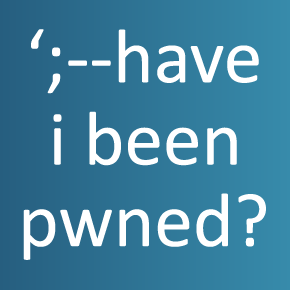I'm hoping someone can help me with two emails I've received, Both are from 'Save Yourself' but are different email addresses and sent on different dates?
The first initial email highlights:
On Saturday the 20th of July at 12:52PM
I received the FIRST email from SaveYourself28@1318.com 'Save Yourself' with the subject field 'Your Chance' stating they know one of my passwords as my computer was infected with their private malware. This claim is true and I can confirm they know my password to one of my website log ins. they have indicated QUOTE:
*your browser wasn't updated / patched, in such case it's enough to just visit some website where my iframe is placed to get automatically infected, if you want to find out more - Google: "Drive-by exploit".
*My malware gave me full access to all your accounts (see password above), full control over your computer and it also was possible to spy on you over your webcam.
*I collected all your private data and I RECORDED YOU (through your webcam).
*After that I removed my malware to not leave any traces and this email was sent from some hacked server.
*I can publish the video of you and all your private data on the whole web, social networks, over email of all contacts.
*But you can stop me and only I can help you out in this situation.
The only way to stop me, is to pay exactly 800$ in bitcoin (BTC).
It's a very good offer, compared to all that horrible shit that will happen if I publish everything!
***
They then proceed to go on and tell me how I can buy bitcoin at these websites that they have listed.
They have also now provided me with their bitcoin wallet-
***
* My bitcoin wallet is: 1MnUgqSkToq3j7ozwjSh54m1WxWZ3Xqym6
Copy and paste my wallet, it's (cAsE-sEnSEtiVE)
*You got 3 days time to pay.
*As I got access to this email account, I will know if this email has already been read.
If you get this email multiple times, it's to make sure that you read it, my mailer script is configured like this and after payment you can ignore it.
After receiving the payment, I remove all your data and you can life your live in peace like before.
*Next time update your browser before browsing the web!
*Mail-Client-ID: 8382423811
[End of email]
The first initial email highlights:
On Saturday the 20th of July at 12:52PM
I received the FIRST email from SaveYourself28@1318.com 'Save Yourself' with the subject field 'Your Chance' stating they know one of my passwords as my computer was infected with their private malware. This claim is true and I can confirm they know my password to one of my website log ins. they have indicated QUOTE:
*your browser wasn't updated / patched, in such case it's enough to just visit some website where my iframe is placed to get automatically infected, if you want to find out more - Google: "Drive-by exploit".
*My malware gave me full access to all your accounts (see password above), full control over your computer and it also was possible to spy on you over your webcam.
*I collected all your private data and I RECORDED YOU (through your webcam).
*After that I removed my malware to not leave any traces and this email was sent from some hacked server.
*I can publish the video of you and all your private data on the whole web, social networks, over email of all contacts.
*But you can stop me and only I can help you out in this situation.
The only way to stop me, is to pay exactly 800$ in bitcoin (BTC).
It's a very good offer, compared to all that horrible shit that will happen if I publish everything!
***
They then proceed to go on and tell me how I can buy bitcoin at these websites that they have listed.
They have also now provided me with their bitcoin wallet-
***
* My bitcoin wallet is: 1MnUgqSkToq3j7ozwjSh54m1WxWZ3Xqym6
Copy and paste my wallet, it's (cAsE-sEnSEtiVE)
*You got 3 days time to pay.
*As I got access to this email account, I will know if this email has already been read.
If you get this email multiple times, it's to make sure that you read it, my mailer script is configured like this and after payment you can ignore it.
After receiving the payment, I remove all your data and you can life your live in peace like before.
*Next time update your browser before browsing the web!
*Mail-Client-ID: 8382423811
[End of email]



